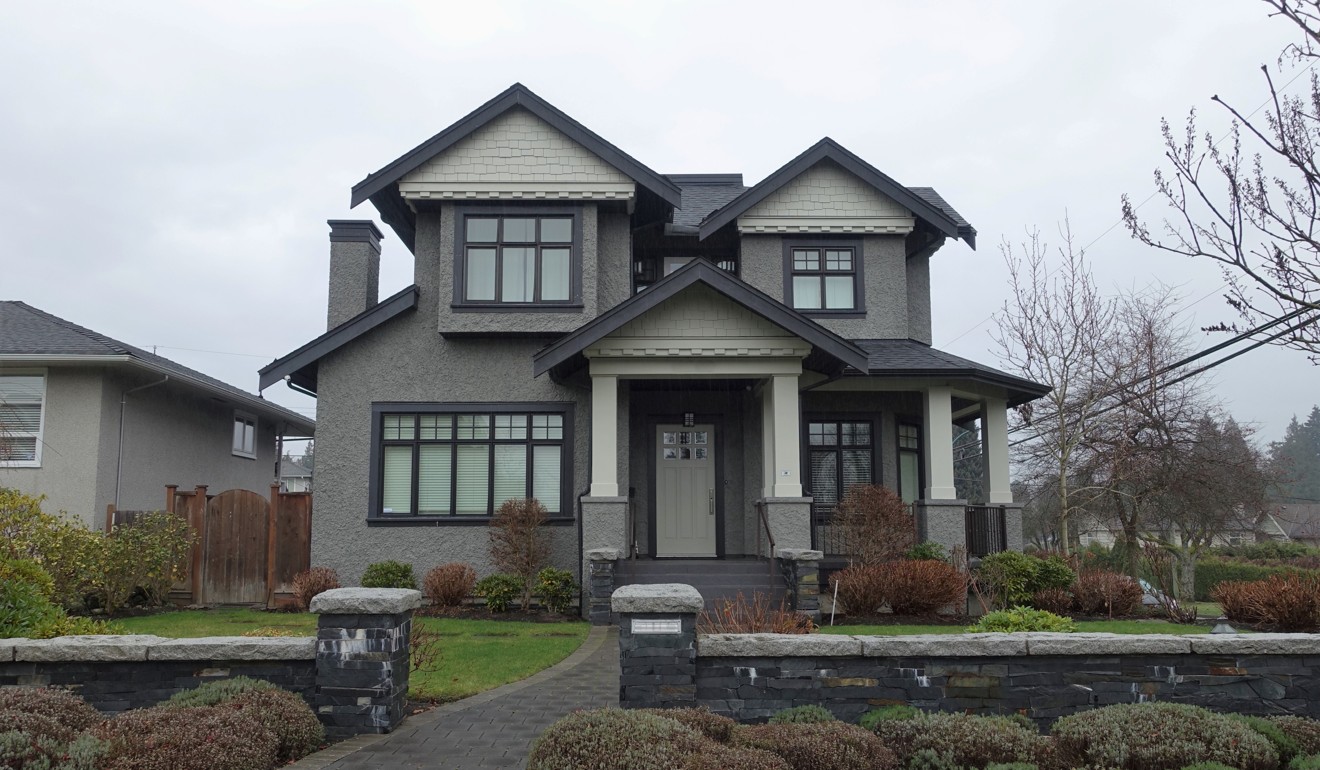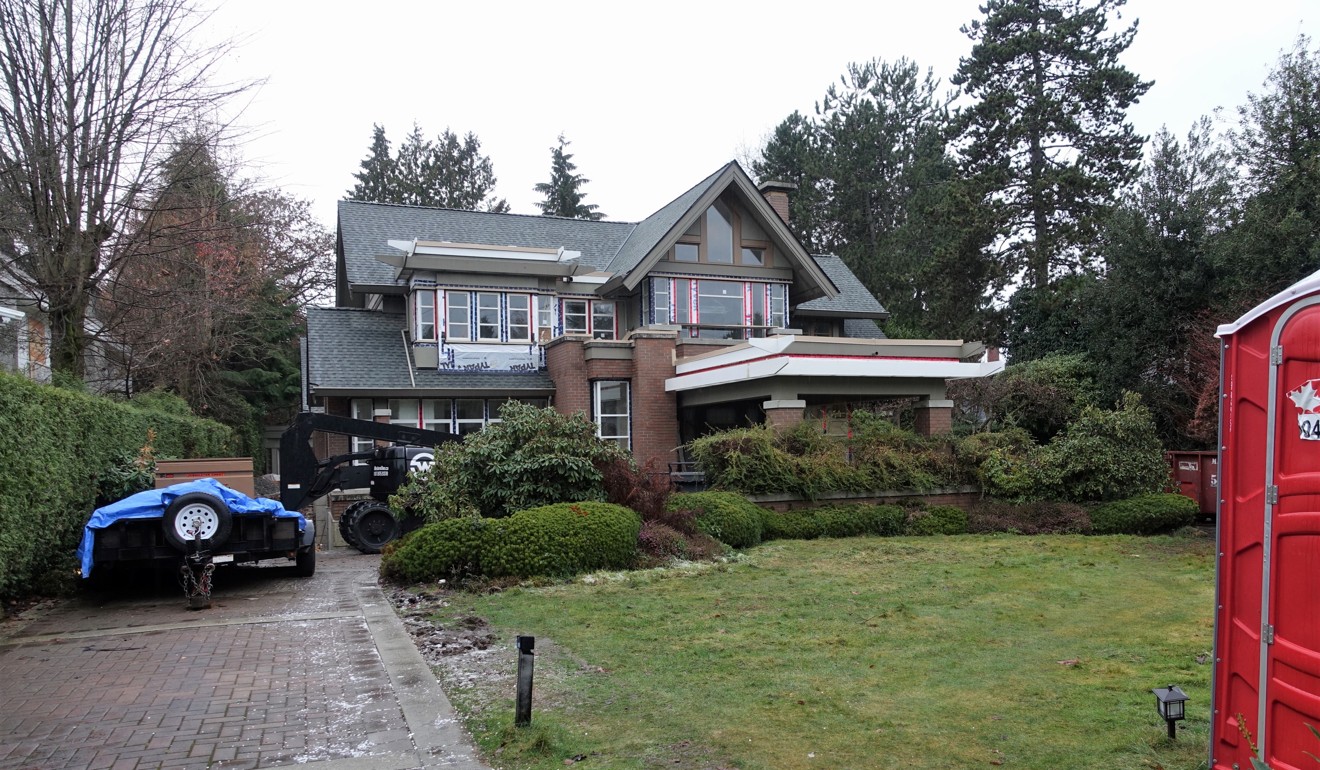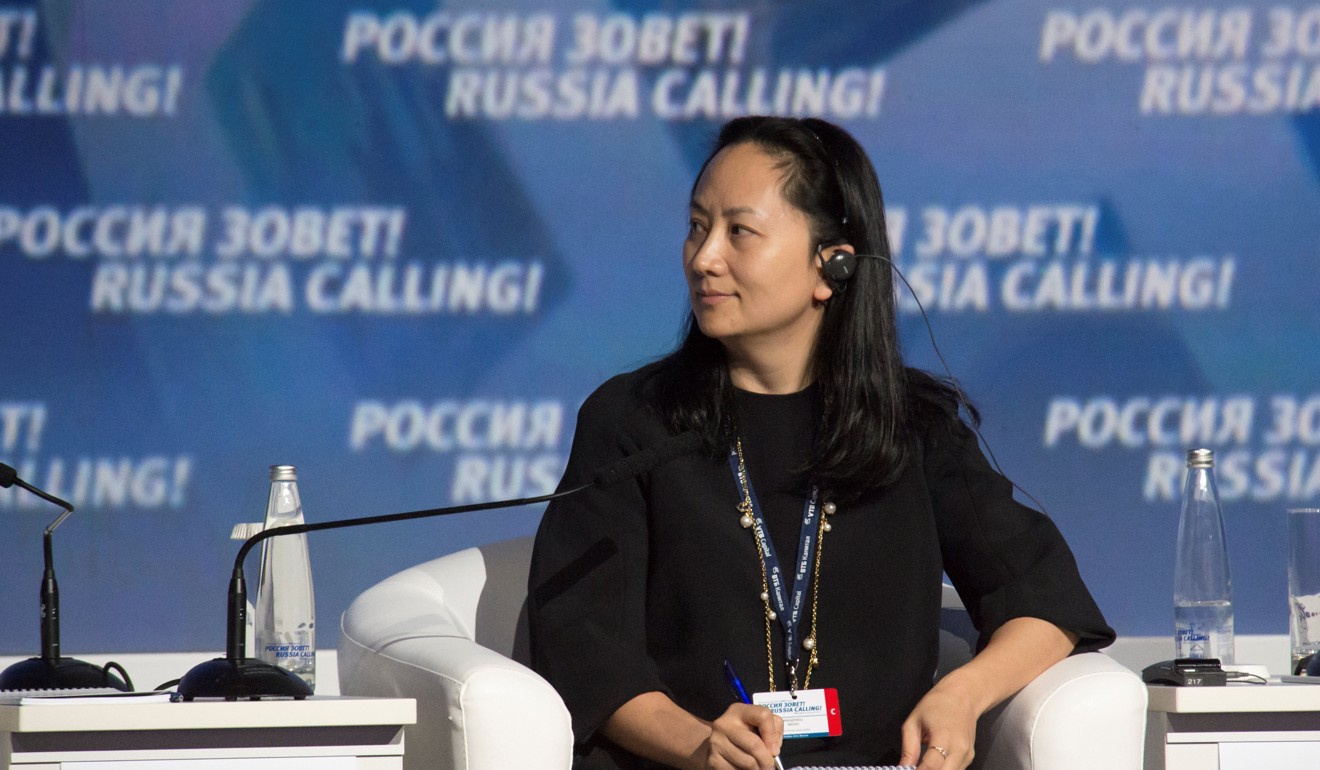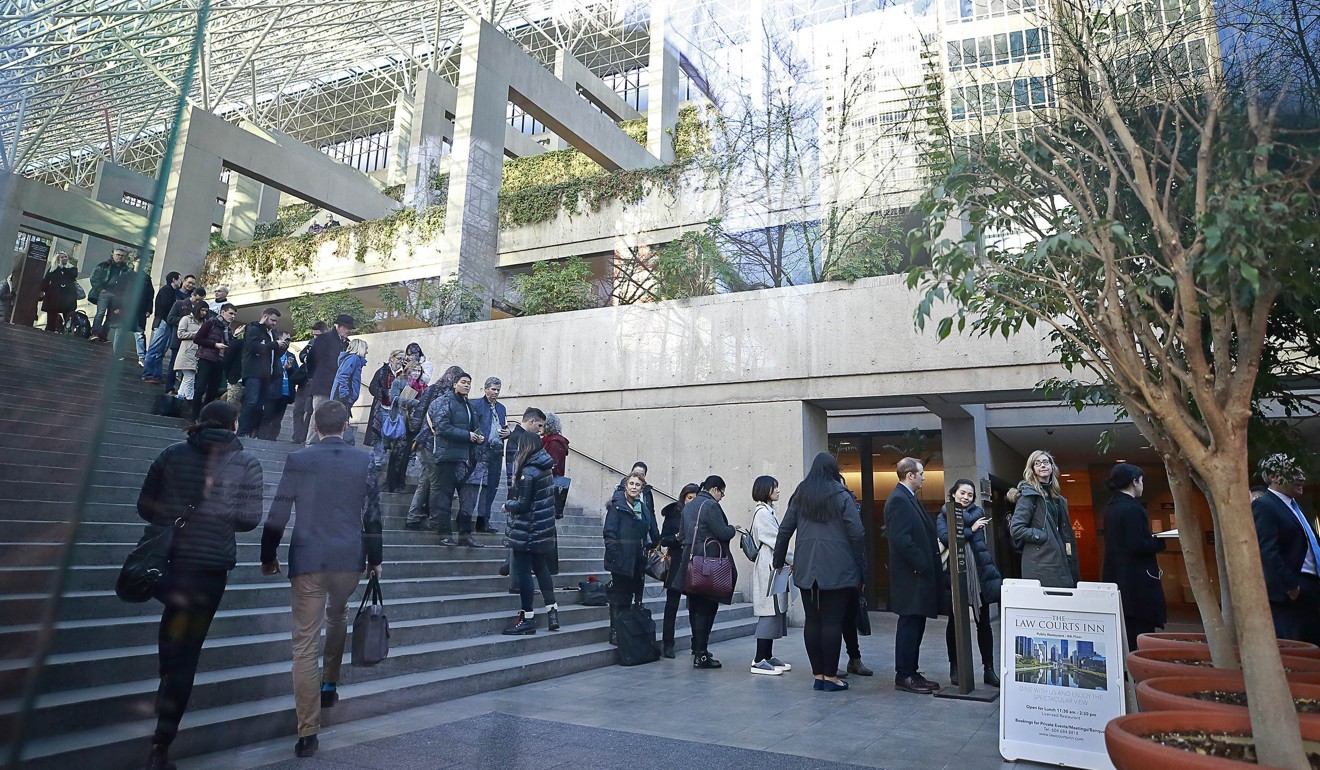Surprise, surprise, Vancouver: Huawei CFO Sabrina Meng Wanzhou is a mansion-owning, satellite-parenting reverse immigrant
- Title documents on two Vancouver homes, worth US$16.4 million, identify Meng Wanzhou’s husband as Liu Xiaozong
- Meng’s current circumstances are remarkable, but her Canadian backstory is familiar – she is a reverse immigrant who left family members in Vancouver for years
PUBLISHED : Monday, 10 December, 2018
With the arrest of Huawei CFO Sabrina Meng Wanzhou at the request of the United States, Vancouver has found itself at the epicentre of a ground-shaking, magnitude-nine, monster of a story.
A distillation of two superpowers’ current and future battle for primacy on the world’s economic stage, the case has roiled financial markets and provoked fury from Beijing, as the US-China trade war hangs in the balance. It is a tale of epic sweep.
And yet on another, granular, level, Vancouverites could be forgiven for thinking Meng’s backstory sounds, well, pretty ho-hum: that of a wealthy returnee immigrant and satellite parent, who abandoned Canadian permanent residency for more-lucrative opportunities back in China, while buying a couple of Westside Vancouver mansions for her family.
Meng was arrested at Vancouver’s airport as she changed planes in December 1, and is being detained in prison pending the outcome of a bail hearing and possible extradition to the United States to face fraud charges.
It’s Huawei all the way, as Meng’s supporters converge on Canadian court
According to Meng’s lawyer, David J. Martin, his client and her husband – identified in the bail hearing on Friday only as “Mr Liu” – are the owners of two multimillion-dollar properties, in the tony neighbourhoods of Dunbar and Shaughnessy.
Land-title documents show that the homes, on West 28th Avenue and Matthews Avenue, are in the name of Liu Xiaozong.

Meng’s husband is enigmatically described as a “marketing developer” in the October 2009 title registration of the 28th Avenue property, a three-level home currently worth C$5.6 million (US$4.2 million), according to BC Assessment.
She had a Care Card [medical services card]. She had a BC [British Columbia] identification card. She had a social insurance number … she has historically had links to Canada
By the time of the Matthews Avenue purchase in May 2016, Liu’s position had graduated to that of “investor”, befitting the heftier C$16.3 million (US$12.2 million) current valuation.
The homes apparently carry a combined equity value of C$14 million, with that amount being offered as non-cash bail surety by Martin; mortgages are indeed held on both homes by HSBC Canada, according to the titles (Ironically, HSBC is the institution that Washington accuses Meng of defrauding, by supposedly misrepresenting Huawei’s connection to a company doing business in Iran, in breach of US and EU sanctions).
The sprawling Matthews Avenue home is clearly unoccupied: the 8,047-square-foot mansion is undergoing extensive renovations, with a Portaloo on the front lawn and heavy building equipment and a garbage skip occupying the grand circular driveway. A security guard sitting on the doorstep said he did not know the owners but would try to pass on a message.
At the 3,735-square-foot 28th Avenue home, conveniently located between the senior and junior campuses of the elite St George’s private school, the lawn and garden were neatly tended, and an umbrella was on the doorstep. No one answered the front door. Open shutters on the front porch revealed a busy-looking home office inside.
Sabrina Meng Wanzhou: the goldfish in the bowl that is the biggest story in the world
There is a lot to unpack in the affidavits about Meng’s personal affairs and connections to Vancouver, as described by Martin (the actual affidavits had yet to be released by the courts).

They offer a trove of information for anyone interested in her personal affairs. But whatever privacy concerns the executive might once have harboured have clearly been trumped by the urgent necessity to prove the strength of her ongoing connection to Canada, to establish that she poses no flight risk if freed in Vancouver on bail.
For one thing, Meng says that she once immigrated to Canada, but relinquished permanent residency in 2009. Nevertheless, she and her husband went on to purchase the 28th Avenue home that year.
Meng Wanzhou ‘fraudulently represented company to dodge sanctions on Iran’
“She had a Care Card [medical services card]. She had a BC [British Columbia] identification card. She had a social insurance number … she has historically had links to Canada,” Martin told the BC Supreme Court hearing.
Meng technically returned to China as a resident nine years ago, but some of her family stayed behind in Canada for years. One of her sons from a previous marriage, now aged 16, attended school in Vancouver from 2009 to 2012, according to Meng’s deposition, while her and Liu’s daughter, now 10, attended kindergarten in Vancouver at some point.
Liu, meanwhile, was living in Vancouver at the time doing a master's degree.
“She acknowledges that after 2012, the children no longer resided here, however even after the children stopped attending school [in Vancouver] ‘my children spend many weeks, even months here during the summer’,” Martin said, quoting his client’s affidavit.

Meng has two more sons from her previous marriage; a 14-year-old who lives with his father in Hong Kong, and a 20-year-old computer engineer whose location wasn’t described. The middle son attends school in Andover, Massachusetts. Liu and the couple’s daughter now live in Shenzhen. On paper, it looks like a complicated arrangement, but it is by no means unusual for well-off Chinese families to have children schooled and raised around the world, often separated from their parents for lengthy periods.
And according to Martin, Vancouver remained a big part of their story. The lawyer tendered family photos that he described as showing Meng, Liu, their children and Liu’s elderly parents together in Vancouver as recently as August 2018. “There is a consistent involvement of this family in Vancouver life,” Martin said.
Millionaire migrants are exiting Canada but leaving their families behind there, census reveals
It’s not clear exactly when Meng immigrated to Canada, but it does not seem to have impeded her rise in China – Huawei lists career accomplishments spanning 2003 to 2007, before she is identified as CFO in 2011. She is now also deputy chairwoman of Huawei, founded by her father, Ren Zhengfei in 1987.
In many respects, and despite the lamentable newsworthiness of her current circumstances, Meng’s relationship with Vancouver and Canada is a cookie-cutter tale for a rich Chinese immigrant.
Although the programme under which Meng immigrated is not known, fellow millionaire migrants tend to exit Canada with alarming readiness. More than 40 per cent of breadwinners in Chinese-dominated millionaire migrant households have left Canada, according to the most recent Census.

That, in turn, leads to a preponderance of satellite-family arrangements, in which the children or spouse of a returnee breadwinner remain in Canada.
And the eye-popping proportion of house buyers on Vancouver’s Westside who happen to be of Chinese origin, is well documented. In 2015, academic Andy Yan looked at every sale in three of the city’s expensive Westside neighbourhoods (including Dunbar) for a six-month period, and found that 66 per cent of buyers, like Liu, had non-Anglicised Chinese names. Among sales worth C$3 million or more, the proportion of buyers with such names rose to a whopping 85 per cent. His data is in line with other industry statistics.
Why ‘non-Anglicised Chinese names’ matter in Vancouver’s housing market: No, it’s not about race
There are some unanswered questions about Meng’s situation. While she was a permanent resident in Canada pre-2009, was she also paying income tax here as her star rose in Huawei? It’s not clear we’ll find out any time soon – and, frankly, Meng has a lot more to worry about than a potential CRA audit. She faces up to 30 years’ jail in the US on each of multiple fraud charges.
Meng holds both Hong Kong and mainland passports, but is she also a Canadian citizen? That too is unclear, but under Article 9 of China’s Nationality Law, foreign naturalisation amounts to the renunciation of Chinese citizenship – a potentially perilous situation for someone doing business in the mainland should it be revealed. Without making assumptions about Meng’s family, it is more typical among wealthy reverse immigrants for their spouse or children to attain Canadian citizenship.
According to her defenders, Meng is an extraordinary woman. Her current conditions certainly are. But her waxing and waning connections to Canada and Vancouver? They are all too commonplace.
No comments:
Post a Comment
Comments always welcome!